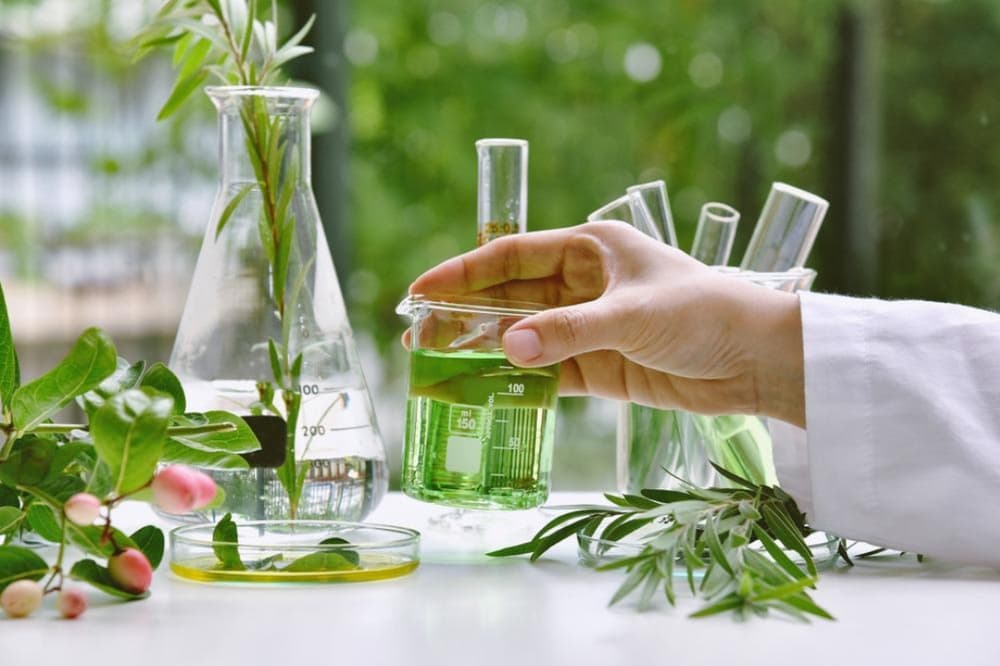"Plant-Based Pharma: Are Mushrooms and Seaweed the Future of Medicine?" explores the rising trend of using natural sources like medicinal mushrooms, seaweed, and psychedelics as modern therapeutics. With growing scientific backing, these plant-based compounds are proving effective in treating mental health issues, inflammation, cognitive decline, and chronic diseases
Plant-Based Pharma: Are Mushrooms and Seaweed the Future of Medicine?
Written by Sumit Kaushik

In a time when pharmaceutical innovation is equated with high-tech lab and synthetic molecules, a low-profile revolution is underway — one in earth, sea, and ancient culture. Visit the world of plant medicines, where seaweed, fungi, and other natural molecules are having their resurgence as effective belligerents in the battle against modern disease.
With growing awareness throughout the world regarding chemical side effects, environmental stability, and well-being in general picking up steam, functional fungi, oceanic botanicals, and psychedelic-aided therapies are being placed under the spotlight as the future of health care.
The Rise of Therapeutics from Plants
Plant-based medicine is not new — it's old. Ayurveda, traditional Chinese medicine, and Indigenous healing practices have been harnessing plants for millennia. But now, what is new is the scientific research and technological developments driving these natural treatments into today's pharmaceutical pipelines.
From reishi mushroom-enriched immunoglobulins to kelp and spirulina being embraced to cure thyroid diseases and inflammation, plant-derived compounds are no longer alternative — they are going mainstream.
Key Drivers of the Trend
Consumer clean-label, natural treatment demand- Concerns of synthetic drug manufacture being unfeasible
- Biotech gains enabling the use of bioactive compound extraction technology
- Gaining mental health epidemic propelling research in to non-traditional treatment options
Mushrooms: Nature's Multi-Tasking Miracle
Not mere pizza topping or forest fringeware secret any longer, therapeutic mushrooms are clamoring for earnest attention. Consider the reasons below:
Mushrooms for Function in Contemporary Health
Lion's Mane (Hericium erinaceus): As a neuroregenerative herb, Lion's Mane is researched for cognitive function and the treatment of neurodegenerative disease (such as Alzheimer's).
Reishi (Ganoderma lucidum): A much sought-after adaptogen which helps regulate stress, immune function, and cardiovascular health.
Cordyceps: Also employed to enhance endurance and sports performance, Cordyceps is an extremely potent anti-inflammatory and anti-tumor as well.
Psychedelic Mushrooms & Mental Health
What was previously avoided is now being hailed as revolutionary. Psilocybin, the psychoactive compound found in psychedelic mushrooms, has been awarded FDA "breakthrough therapy" status for treatment-resistant depression and PTSD.
Clinical trials by institutions like Johns Hopkins and MAPS are confirming what ancient societies already knew — these mushrooms can treat the mind when taken within a controlled, therapeutic setting.
Seaweed: The Ocean's Undervalued Apothecary
While mushrooms dominate the forest pharmacy, seaweed dominates the sea pharmacy. Filled with iodine, antioxidants, omega-3s, and polysaccharides, sea algae is rapidly becoming a goldmine for healing and health.
The Seaweed Potential of Pharmaceuticals
Fucoidan (from brown seaweeds wakame and kombu) has anti-cancer, antiviral, and immune-modulating activities.
Alginate molecules are investigated for cholesterol reduction, heavy metal chelation, and wound healing.
Spirulina and chlorella, being technically microalgae, are themselves superfoods, used in the treatment of high blood pressure, allergies, and even arsenic poisoning.
In Japan and Korea, where seaweed forms part of everyday diet, there has been reduced obesity, diabetes, and specific cancers — which supports its medicinal properties.
Psychedelic-Assisted Therapy: Bringing Ancient Knowledge and Clinical Science
The largest pharma buzz-gen is psychedelic-assisted therapy from plants — pairing psychoactive plant or fungus with guided therapy to heal trauma, depression, anxiety, and even addiction.
Psychedelics At The Cutting Edge:
Psilocybin (magic mushrooms) to heal depression and death anxiety with terminal illness.- Ayahuasca (with DMT) to heal PTSD and spiritual awakening.
- Ibogaine to heal opioid addiction.
- LSD and MDMA (technically not plants, but usually in the same basket) for emotional liberation
As decriminalization continues to pick up steam and mental health awareness grows, the psychedelic renaissance is welcoming with open arms — and open research budgets.
Challenges to Widespread Acceptance
Despite their promise, plant medicines still face challenges:
- Regulatory ambiguity (specifically for psychedelics)
- Need for more large-scale clinical studies
- Pharmaceutical lobby efforts against natural competitors
- Dosage standardization and purity continue to be difficult with natural compounds
But biotech firms, integrative doctors, and aware shoppers are all pushing the revolution forward.
The Future: A Symbiotic Model of Healing
Picture a system of health where:
- Your fear is treated with psilocybin therapy and supplemented with Lion's Mane vitamins.
- Your thyroid is regulated not by artificial tablets but by kelp-based iodine.
- Your immune system is strengthened every day not by laboratory-made pills but by a reishi mushroom tea cup.
This isn't science fiction — it's pharma of the plants, and we're already here.
Last Words: Getting Back to Our Roots
In struggling to meet the demands of 21st-century health crises — mental health to superbugs — perhaps the solution isn't so much innovation, but reconnecting. Mushrooms and seaweed are unassuming, but they are part of an uncompromising ecological intelligence we're only just beginning to tap into.
Botanical medicine is not the rejection of scientific modernity. It's a matter of moving forward together — combining the timeless wisdom with the best of our current knowledge in order to construct a healthier, more sustainable planet.